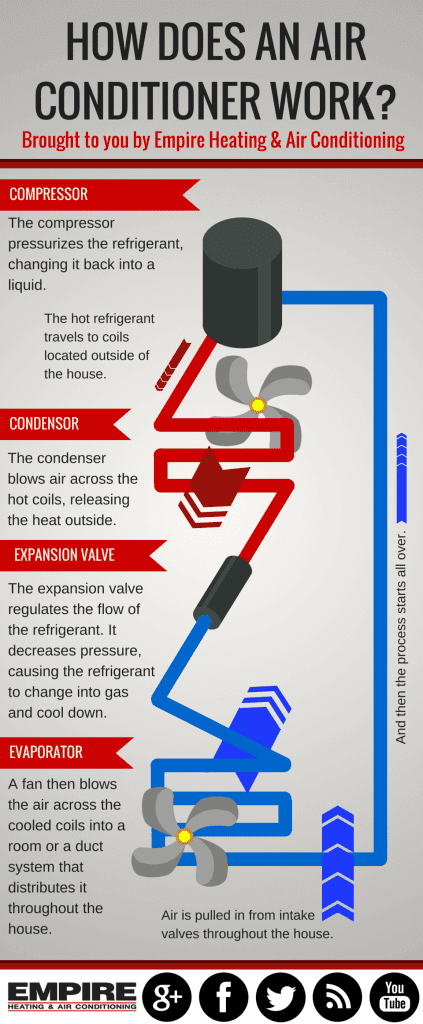Heat Pump Vs Furnace - Which Is The Better Home Heating Option For Your Home?
Heat Pump Vs Furnace - Which Is The Better Home Heating Option For Your Home?
Blog Article
Web Content Writer-Bonner Mosegaard
Numerous home owners recognize with heaters, which heat homes with oil or gas and push hot air via ductwork. Read More In this article are reasonably cost-effective and can provide trustworthy heating even throughout a winter season power outage.
However, click here to read make use of fossil fuels and generate carbon monoxide gas and other air contamination. They also aren't as energy-efficient as a high-efficiency heatpump.
Expense
Typically, heatpump are more inexpensive to run than heaters. They generally use power and refrigerant to extract warm from outdoor air, and afterwards transfer it into your home. You can make the most of more affordable power prices during off-peak hours to better decrease your heating costs.
Unlike heat pumps, gas or wood-burning heaters make use of burning to produce heat, giving off flue gases right into the ambience that can be harmful to your wellness. These furnaces are additionally less energy-efficient than heat pumps, and their higher operating expense can accumulate over time.
Heaters are a lot more complex than heatpump and need routine upkeep to make sure the proper function of all parts. Despite this, they tend to last longer than heat pumps with a common life expectancy of twenty years or more. However, you'll require to consider the expense of gas, fuel oil or timber and the extra equipment needed for installment and procedure such as ducts and air flow systems.
Energy Performance
Heat pumps have a greater power performance score than furnaces. These systems utilize electricity to scavenge warm from the air, even in freezing temperature levels. They can likewise get rid of excess warmth from the home during warmer months and recycle it to cool down the system. Provider specialists can help you figure out the best model for your online on environment and source power prices.
Heaters melt gas oil, propane, natural gas or other types of fossil fuel to heat the air in the home. This air is after that distributed with ductwork using a large fan. Furnaces produce greenhouse gases and require regular maintenance and equipment upgrades to ensure risk-free operation.
The biggest advantage of a heater is that it can be operated also in harsh winter conditions because it does not depend on outside temperature levels to warm the air. Heating systems likewise have a longer lifespan than heatpump and usually last 15 years. They can likewise be coupled with twin fuel alternatives, which choose one of the most reliable heating option based upon the climate.
Climate
Heatpump work well in moderate climates and make use of much less source energy than heating systems. However, if your area is remarkably chilly, you may need to purchase a typical gas heater rather.
Heaters supply cozy, relaxing warm and generally supply rapid home heating to increase indoor temperatures. These systems can be used with a variety of gas types, including natural gas, lp, oil or power.
They eat a lot more power than heatpump-- approximately 3x as much-- and call for ductwork that's expensive to set up or retrofit. They're likewise much more pricey to preserve, as they can create air high quality problems and create greenhouse gas emissions.
If you're dedicated to lowering your carbon footprint, a heatpump is a good option for your home. They have less greenhouse gas exhausts than heating systems, particularly if you select an ENERGY CELEBRITY ® heat pump. Your neighborhood Service provider expert can clarify the distinctions in between these two furnace and aid you make the most effective decision for your special demands.
Individual Preferences
Heating systems can be extremely power efficient when powered by gas, lp or oil, yet they aren't as power efficient as heatpump in icy climates. They can likewise be much more pricey to install, needing gas lines and ventilation systems.
However, heaters tend to need much less upkeep, which can lead to reduced continuous costs. They produce less greenhouse gases and are much more dependable than heatpump throughout severe climate.
Electric heat pumps are more functional in developing interior convenience due to the fact that they can also act as air conditioning unit during warmer months. They can be more convenient to keep, calling for just routine air filter changes and periodic vacuuming.
If you choose the comfort of a single system that does it all, consider a crossbreed heating option that sets a furnace with an electrical heatpump. These systems can immediately switch over between both heating alternatives based upon your home's demands and temperature level conditions, maximizing efficiency and savings.